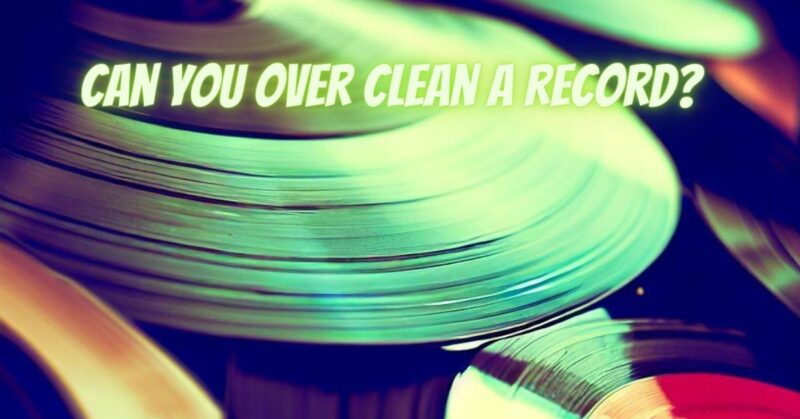Vinyl records, cherished for their analog sound and tangible experience, require regular maintenance to ensure optimal playback quality and longevity. However, a pertinent question arises: can you over-clean a vinyl record? The pursuit of pristine sound can sometimes lead to excessive cleaning practices, potentially impacting the very records enthusiasts seek to protect. In this article, we explore the nuances of vinyl record cleaning, the risks of overdoing it, and the delicate balance that ensures both effective cleaning and record preservation.
Understanding Record Cleaning: Vinyl records are susceptible to collecting dust, dirt, oils, and other contaminants over time, which can result in surface noise and compromised audio quality. Record cleaning aims to remove these particles to enhance playback and extend the life of the record. Various cleaning methods and tools are available, ranging from simple brushes to advanced record cleaning machines.
The Risks of Over-Cleaning: While keeping records clean is essential, over-cleaning can have adverse effects. Repeated and aggressive cleaning can lead to wear on the record’s surface, potentially compromising the grooves that contain the audio information. Additionally, excessive moisture or cleaning agents can harm the record label, the cardboard sleeve, or even seep into the paper inner sleeve, causing damage.
Signs of Over-Cleaning: Certain signs indicate that a record might be over-cleaned:
- Visual Damage: Scratches, scuffs, or visible marks on the record’s surface from abrasive cleaning.
- Audio Changes: A loss of fidelity, increased surface noise, or alterations in sound quality after excessive cleaning.
- Label Damage: Fading, warping, or peeling of the record label due to exposure to moisture.
Balancing Cleaning Practices: To strike a balance between effective cleaning and record preservation, consider the following tips:
- Moderation: Clean records only when necessary. If a record doesn’t exhibit noticeable surface noise, excessive cleaning might not be required.
- Gentle Methods: Use gentle cleaning methods, such as using a carbon fiber brush or a microfiber cloth, to remove dust and static.
- Non-Aggressive Cleaning Agents: When using cleaning solutions, opt for those specifically designed for vinyl records. Apply them sparingly and ensure they don’t contain harsh chemicals that could harm the vinyl.
- Proper Drying: After cleaning, ensure that the record is thoroughly dried before playback to prevent moisture-related damage.
- Storage and Handling: Proper storage in a clean environment and careful handling can significantly reduce the need for frequent cleaning.
The delicate balance between effective cleaning and record preservation is crucial for vinyl enthusiasts. While regular cleaning is essential for maintaining audio quality and prolonging the life of records, over-cleaning can introduce risks such as wear, label damage, and changes in sound quality. By adopting moderate and gentle cleaning practices, using appropriate cleaning tools and solutions, and being mindful of the signs of over-cleaning, collectors can enjoy the best of both worlds: enhanced sound quality and well-preserved vinyl records that stand the test of time.


